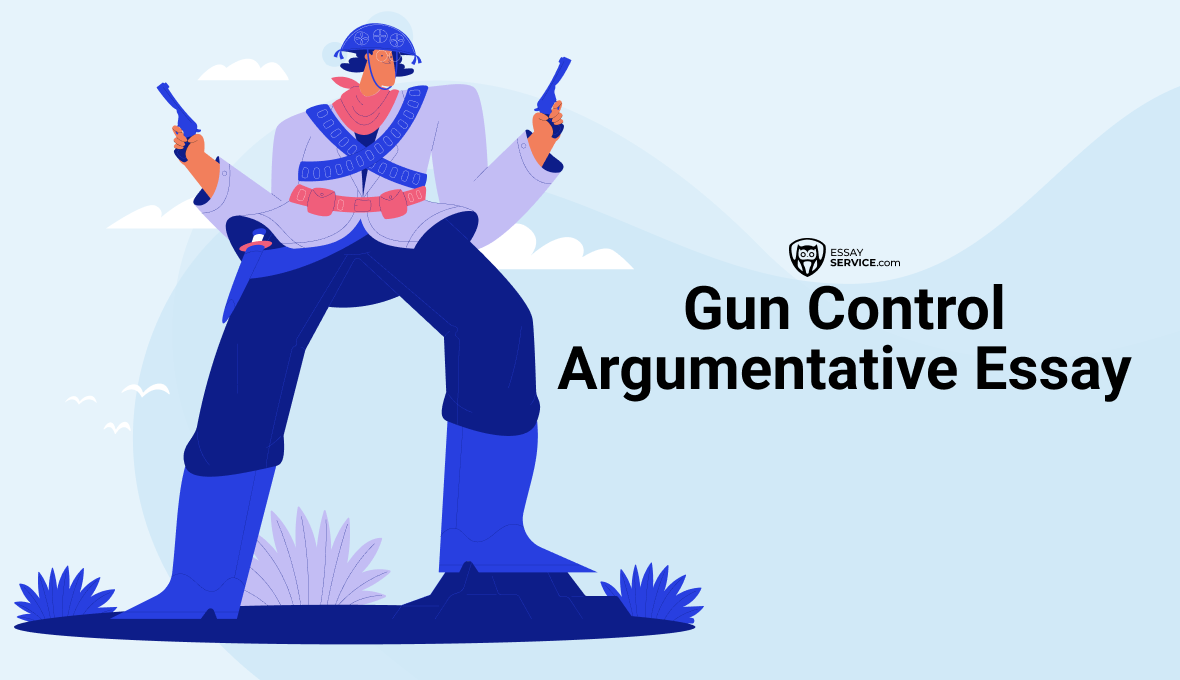 (1).webp)
How to Write An Expository Essay: Step-by-Step Writing Process
The word 'expository' derives its roots from the Latin term 'expositio,' which is a combination of two key components: 'ex' meaning 'out of' or 'from,' and 'positio' meaning 'position' or 'placement.' When combined, 'expositio' quite literally means 'the act of placing or explaining something out of' – a concept that perfectly encapsulates what's an expository essay. Crafting this type of essay, at its core, is an exercise in effective explanation and clear presentation. It involves the skillful placement of information in a manner that allows the reader to grasp the subject matter easily.
How to Write An Expository Essay: Short Description
In this comprehensive guide, you'll uncover a wealth of valuable information and insights related to expository essay writing. It's designed to equip you with the knowledge and tools necessary to excel in this particular form of academic writing. You'll gain techniques for crafting clear and concise thesis statements, developing well-structured body paragraphs, and effectively supporting your arguments with evidence and examples. Additionally, our expository essay writing service will explore a selection of engaging and thought-provoking topics perfectly suited for these essays. These topics have been carefully chosen to stimulate critical thinking and provide ample material for analysis and discussion.
What is an Expository Essay
A good expository essay involves:
- Exploring a particular idea or issue.
- Researching the existing evidence.
- Presenting a coherent and to-the-point argument.
To reach the desired result, a writer should define concepts, exemplify the ideas, compare and contrast related phenomena, or provide cause-effect reasoning.
What differentiates an expository essay from other writing assignments is its goal. The very name of the essay type gives a hint - to 'expose' an idea. Thus, your objective is to inform the audience about a particular concept or view. Your argument must be based on hard facts, simple, and explicit. The tone of the expository essay should be neutral; you shouldn't try to persuade the reader or take sides. Whether you write descriptively or draw a comparison, you need to be unbiased.
Types of Expository Essays
Now that you know the expository essay definition, there is one more important aspect to consider: These essays can be of various types, which influences their structure and content. Therefore, you need to know their differences to write a quality paper. Commonly, there are six main types dissected by our expository essay writer:
%2520(2).webp)
Process or 'How-To' Essays
This type explains how to get something to work. It guides the reader through the stages of a certain process. Process essays usually include descriptions of steps and directions for the reader to follow. These can be technical instructions or recipes, for example:
- 'How to Bake a Cake'
- 'How to Repair a Bike'
Compare and Contrast Essays
Compare and contrast expository essays aim at discussing similar and divergent aspects of ideas, concepts, locations, or objects. To present your findings, you can use one of the following techniques: the alternating method, combination method, or block method. The examples of a compare and contrast essay can include the following topics:
- 'Democracy vs. Autocracy: Differences and Similarities'
- 'Comparison of In-Class Education and Homeschooling'
Cause and Effect Essays
Working on this type of essay, you need to investigate the cause-effect relations of a particular event. This entails identifying and classifying the reasons and discussing the results. The topics that fall within this type are:
- 'Causes of Unemployment in Your Country'
- 'What are the Reasons for Burnout at Work?'
Problem and Solution Essays
These expository essay examples raise a relevant issue and analyze it from different points of view. Having presented the problem, you need to develop a possible solution. For example, you can discuss:
- 'How Can the Influence of Social Media on Body Image Be Reduced?'
- 'How to Encourage Students to Be More Interested in Sports?'
Classification Essays
Classification essays require a particular mastery of critical thinking as you need to categorize objects according to their distinctive features. Thus, these essays discuss the aspects of a certain broad topic in detail. You should explain the reason for sorting items into categories and provide examples. The classification essays include such topics as:
- 'Types of Holiday Destinations'
- 'The Impact of Social Media on Different Age Groups'
Definition Essays
The expository definition essay focuses on the definition of a term or concept. It entails providing a common dictionary definition in addition to less conventional interpretations. You may add examples, explain the origin of the term, and refute the wrong understanding of the concept under discussion. For instance, you may discuss the following topics:
- 'What is Friendship?'
- 'What Does Being Tolerant Mean?'

Expository Essay Structure
The block and chain structure of expository essay are the two most common types. The block method implies discussing one subject at first, then moving on to another topic in a separate paragraph. For example, such a structure of a problem and solution essay may be illustrated in the following way:
- Problem 1
- Problem 2
- Solution 1
- Solution 2
The chain structure for the same problem and solution essay would look like this:
- Problem 1
- Solution 1
- Problem 2
- Solution 2
Thus, the chain structure allows you to discuss each aspect of the problem point by point, which is especially useful for longer papers. However, both of these structures are suitable for the expository essay format. You should choose the method you feel more comfortable with.
Expository Essay Prompts
Students often encounter various types of expository essay prompts at different educational levels, from primary school to college. These prompts serve to inspire and educate students by requiring them to research and explain specific topics.
For example, a descriptive essay prompt might ask a student to describe a place, person, experience, object, or situation. A cause-and-effect essay prompt could prompt a discussion on the causes and consequences of cheating in school, emphasizing the importance of honesty.
Here's a list of sample topics and their goals from our online paper writing service:
- Were Jews the main target of the Nazis during World War II?
- Goal: Evaluate Holocaust circumstances and provide evidence to support or refute this statement.
- Is animal testing ethical?
- Goal: Analyze the pros and cons of animal testing and present a well-supported argument for or against it.
- Is cloning morally acceptable?
- Goal: Examine the advantages and disadvantages of cloning, especially human cloning, and present an informed ethical perspective.
- Who is your female mentor, and why?
- Goal: Choose a female leader as a mentor and explain the reasons behind this choice, highlighting the mentor's virtues.
- If time travel were possible, where and why would you go?
- Goal: Explain the choice of a specific historical period for time travel, incorporating personal and historical reasons.
These prompts encourage students to explore, analyze, and articulate their ideas on various subjects.
Expository Essay Topics
While the overall content of an expository essay will depend largely on the prompt, the student may have some freedom to choose the specific topic or at least the angle; he wants to illuminate in the paper. For instance, he could explain the origin of a particular group of individuals in society; in such a case, the author should make the story as interesting as possible. The writer could explain a cow's digestion process for a process essay. Finally, a descriptive essay could describe a time when the writer experienced depression and what he believes to be the cause.
Lastly, the topic for a problem or solution essay could be how society can reduce or eliminate racism, using facts to expose the history of racism in specific communities.
Here are the topics from our annotated bibliography writing service:
Social Issues TopicsWhile the overall content of an expository essay will depend largely on the prompt, the student may have some freedom to choose the specific topic or at least the angle he wants to illuminate in the paper. For instance, he could explain the origin of a particular group of individuals in society; in such a case, the author should make the story as interesting as possible. The writer could explain a cow's digestion process for a process essay. Finally, a descriptive essay could describe a time when the writer experienced depression and what he believes to be the cause.
Lastly, the topic for a problem or solution essay could be how society can reduce or eliminate racism, using facts to expose the history of racism in specific communities.
Here are the topics from our annotated bibliography writing service:
Social Issues Topics
- How can we combat the climate crisis and transition to green practices?
- What are the effects of technology on mental health, and how can we address them?
- How can we promote gender diversity and inclusivity?
- How can we achieve racial equity and combat systemic racism?
- What are the ethical challenges of emerging tech, and how can we protect privacy?
- How can we address global health crises and ensure healthcare equity?
- How can we safeguard against cyber threats and protect online privacy?
- How do young activists drive social change and create an impact?
Education Expository Essay Topics
- How does the digital divide impact students' access to online learning resources, and what solutions can bridge this gap?
- How does integrating social-emotional learning into the curriculum benefit students' overall well-being and academic success?
- What are the essential skills and competencies that students need to thrive in the rapidly evolving job market, and how can schools incorporate them into their programs?
- What is the significance of decolonizing educational curricula, and how does it contribute to a more inclusive and diverse learning experience?
- How does STEM (Science, Technology, Engineering, and Mathematics) education contribute to preparing students for careers in a technology-driven world?
- What are the benefits and drawbacks of alternative education models like homeschooling, unschooling, or Montessori education?
- What factors contribute to teacher burnout, and what strategies can schools and policymakers implement to improve teacher retention and job satisfaction?
Ethical Issues Topics
- What ethical considerations surround the development and use of AI technologies?
- How should society approach the ethical implications of gene editing and genetic manipulation?
- What are the ethical concerns related to the collection and use of personal data in the digital era?
- What ethical dilemmas arise from the deployment of self-driving cars and their decision-making processes?
- What ethical issues are associated with human cloning and its potential applications?
- How should society address ethical questions regarding environmental conservation and sustainability?
- What ethical guidelines should AI-driven journalism platforms follow to ensure accurate and responsible reporting?
Health Topics
- What factors contribute to vaccine hesitancy, and how can it be addressed?
- How can we reduce the stigma surrounding mental health issues?
- What are the keys to promoting healthy aging and well-being in older adults?
- How does diet affect obesity rates, and what strategies can combat this issue?
- What are the benefits and challenges of telemedicine in providing healthcare services?
- How does antibiotic resistance develop, and why is it a global health concern?
- What are the root causes of health disparities among different populations, and how can they be mitigated?
Writing An Expository Essay Outline
Traditionally, expository essays include five paragraphs:
- Introduction
- Main Body Paragraph 1
- Main Body Paragraph 2
- Main Body Paragraph 3
- Conclusion
This is a standard way to approach this type of paper, but you can add alterations if the task requires it. Also, you can get professional help with your essay from pay for essay services and make this task easier. Meanwhile, let's get into more details below:
Introduction
As with any other writing, an expository essay should start with an introductory paragraph. Keep it short (3-5 sentences) but informative. In the first sentence, try to interestingly present the problem to the readers. This would be your hook. You should then write general information about the topic, mention why this issue is relevant, and outline the context in which you plan to discuss the problem. This part must be engaging and compelling for the audience to become interested in your piece. Remember that the introduction lays the foundation for further developing your argument.
You should incorporate a powerful thesis statement in the last sentence of the introduction. A thesis statement reflects the main idea of the essay and asserts the author's findings. When making this claim, professionals recommend asking yourself what you are trying to say with your essay. However, you should refrain from expressing your personal opinion. It is better to stay neutral and present only proven facts. Invest some extra time to make this sentence thoughtful and convincing.
The outline of the introduction can be summarized in the following way:
- Hook
- General information
- Proof of topic relevance
- Context of the topic
Expository Essay Body
The body of the essay should explain your arguments. It must be the most detailed part of the text, so make it specific and do not add any fluff. Make sure that each paragraph is focused on one particular idea or claim. It would help the reader to stay focused and follow your line of argumentation without effort. Typically, you would need to write three body paragraphs. Each of them must have the following outline:
- A topic sentence that correlates with a thesis statement
- Evidence that supports a topic sentence
- Explanation of the evidence
- A concluding sentence that summarizes the main points of the paragraph
A topic sentence should introduce the idea of the whole paragraph. Make it concise and clear. Remember that your topic sentences should be connected to the first paragraph's thesis statement. Use facts, examples, and statistics as evidence to support your claim.
Make sure you cite the information from outside sources in the style your assignment requires, such as MLA, APA, Harvard referencing, etc. Correctly cited and incorporated evidence will show the audience that the information you present is credible and trustworthy. It is best to have three points or evidence to support each topic sentence. Finally, finish the paragraph with a concluding sentence to summarize the claims you have made.
Make sure that the body paragraphs are logically linked. Incorporate transitions either in the last sentence of the previous paragraph or in a topic sentence of the following one. Use linking words to make the text cohesive.
Conclusion Of Expository Essay Outline
The concluding paragraph should summarize the main points of your essay. You do not need to add any new information. Start by restating the thesis statement, but do not copy it. Then, summarize the supporting arguments and create a thought-provoking statement or question, making it the last sentence of your paper.
How to Write An Expository Essay: Simple Steps
A successful writing process requires thoughtful preparation and planning. If you don't have time for that, you can always buy an essay online from our service. But if you do decide to write it yourself, divide your work into five following stages.
%2520(1).webp)
Brainstorming
Before you start writing your expository essay, you need to select your expository essay topic and brainstorm ideas and possible arguments. If it is your school or college assignment, most probably, you already have particular guidelines. Read what your teacher or professor wants you to do and see what ideas you can come up with regarding the topic. Note them down. Make sure that you can fully cover the topic within the required word count limits. For this reason, do not choose a subject matter that is too broad or too narrow. In addition, the topic must be relevant not only to society in general but also to you personally.
Planning
Once you've done brainstorming, start planning. Use the outline mentioned above. It will help you stay focused on the topic and build your argumentation in an effective way.
During planning, try to divide the researched information into sections. For example, the outline on the topic' Leadership Styles' can look like this:
Introduction
- Definition of a leadership;
- General information about leadership;
- A thesis statement that claims that there are different leadership styles that work well when properly balanced.
Main Body Paragraph 1
- Topic sentence that introduces the first style to be discussed, democratic leadership, and states its essence;
- Supporting evidence: it provides freedom;
- Supporting evidence: It encourages learning and creativity;
- Supporting evidence: it ensures loyalty;
- Concluding sentence: The democratic leadership style benefits the working process.
Main Body Paragraph 2
- Topic sentence that introduces the delegative leadership and provides its definition;
- Supporting evidence: It empowers employees;
- Supporting evidence: It allows relying on a team;
- Supporting evidence: It enhances team building;
- Concluding sentence: The delegative leadership style involves employees' autonomy.
Main Body Paragraph 3
- Topic sentence that introduces the authoritarian leadership and explains it;
- Supporting evidence: It can be applied in combination with other styles;
- Supporting evidence: It has certain limits;
- Supporting evidence: It requires the leader to be strict;
- Concluding sentence: The authoritarian leadership style has its negative sides but can be combined with other leadership styles.
Conclusion
- Summary of the main points;
- Restatement of the thesis.
Writing
So here are the tips for 'how to start expository essay?'. After your essay plan is ready, you can start writing the actual essay. It should be easy, as you already have a detailed outline. You need to combine the ideas using linking and transition words between paragraphs and sentences. Make sure you address each point of the plan and distribute the information equally among the sections. It will help you to discuss all the issues. Remember to refer to reputable sources to underpin your claims.
Proofreading
Once you are done with the writing, you need to proofread and edit your essay to correct any flaws you might come across. If the deadline permits, do it several days or at least hours after the initial drafting. Apart from editing grammar, spelling, and punctuation, you need to ensure that the essay has smooth transitions. It would be better if you read the text aloud as though there is an audience.
As it is academic writing, refrain from using contractions, informal phrasal verbs, slang, and even first-person pronouns. Instead, make sure that the writing style is formal and the tone is neutral and objective.
Submitting
If the essay is flawless and effectively conveys your main idea, you can take the final step and submit or publish it. It may seem like the scariest stage of the writing process to some students. However, if you have invested enough time and effort into writing your essay, your teacher or professor will definitely notice it and give you the mark you deserve. Never be afraid of feedback, even if it is negative, because it is an opportunity for you to grow and develop your writing skills.
Expository Essay Example
Here is a great example of an expository essay created by our experienced graduate essay writing service. This essay is a perfect example of how to write an informative and well-organized piece of writing, which is what expository writing is all about.
Long-term Effects of Global Warming
Over the past century, the average temperature on the surface of our planet has increased by 2.12 degrees Fahrenheit. The changes in surface temperature, sea levels, and local climates all over the world are the first red flags that warn us - 'global warming is here!'. But do we really understand all the consequences it may have?
Global warming is a phenomenon that is defined by a gradual rise in temperatures of the planet's surface, water, atmosphere, and land triggered by human, as well as natural, causes. It has been one of the most discussed topics of the past years. And now, the problem seems to be getting close to the point of no return, with a huge number of long-term effects we can observe soon.
Probably the most obvious effect of global warming is a significant change in temperatures and weather conditions across the world. Indeed, as temperatures rise, the weather in separate regions can get more severe. Scientists assure that a warmer climate can lead to the worsening of many kinds of natural disasters such as heatwaves, storms, droughts, and floods. The warmer the climate is, the more water its atmosphere can collect, retain, and drop. Respectively, over some time, if there are no changes, we can expect to observe a rising number of billion-dollar-loss and very deathly disasters.
One of the scariest long-term consequences of global warming is desertification. Simply put, desertification is a form of land degradation that causes land areas that have been relatively dry to become even more droughty. In the process, these areas typically lose wildlife, vegetation, and bodies of water. The biggest problem here is that this land degradation can significantly reduce the amount of land available for cultivation. Hence, the fewer arable lands will be left, the less food we will be able to grow. As a result, desertification can turn into a real disaster in the form of global hunger. And it's only one adverse long-term impact we can get.
Another adverse effect is the consequent growth of the sea level across the globe. In fact, this is one of the effects of global warming that we can already observe. The process started in the middle of the 19th century and is still gaining pace. During the 20th century alone, the global sea level rose by 17 cm, with another 3.2-3.4 mm added annually. The damage it can do is massive. Unless we do something about it, it will only get worse with time. In the long-term perspective, dozens of cities and countries can end up underwater, causing irreparable damage to flora and fauna, mass migration, and, as a result, many political and economic issues.
Knowing all these terrifying long-term consequences of global warming, there is only one question left to answer - 'Is there anything we can do about it?'. Luckily, we can still reverse these changes. The core trigger for global warming is a boost of gas emissions into the atmosphere. Hence, one of the first things scientists and environmental activists encourage us to do is to reduce emissions of greenhouse gases. This can be possible if we stop burning gasoline and switch to e-vehicles. Another solution is recycling. Recycling can help us minimize waste and, thus, reduce pollution.
In conclusion, I'd like to say that humanity has already done everything possible to destroy the planet we live on. If we don't reduce the harm we do, there might not be a future for our children. Thus, if we want to survive, we must start making a change now, together!
To Sum Up
As you can see, writing an expository essay is rather straightforward when you are well-prepared. You should know the purpose of your work and choose the right essay type. When you are sure about the expository topics, you can research them and express creativity when selecting appropriate evidence for your claims. Additionally, when you have a solid plan in place and follow the instructions diligently, you can confidently write expository essays that are bound to earn you a good grade.
However, the writing process can be intimidating, even if you know it all. In addition, stress and tight deadlines can prevent you from getting the desired result. It is when an essay writer service can help you with any essay topics for college paper assignments!
Frequently asked questions
New posts to your inbox!
Your submission has been received!



